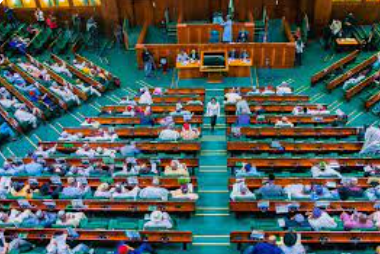The House of Representatives plans to ask top manufacturers Aliko Dangote, Rabiu Abdulsamad, and others to come before them to discuss how to deal with the difficulty caused by the high cost of the product.
The House decision came after they agreed on a motion titled “Arbitrary increase in the price of cement by manufacturers of cement in Nigeria,” brought by a member representing Karu/Keffi/Kokona Federal Constituency, Nasarawa State, Mr Gaza Gbefwi, during a session on Wednesday and a member representing Shomolu Federal Constituency, Lagos State, Ademorin Kuye.
During a session led by the Speaker, Abbas Tajudeen, Gbefwi argued that cement manufacturers have raised the price of their products by up to 50 per cent, causing steep increases in building blocks, building costs, and consequently, rent prices across the country.
He added that it's strange that even though the raw materials for making cement, such as lime, silica, alumina, iron oxide, and gypsum, are all obtained locally and are not influenced by changes in exchange rates, the price of cement keeps rising almost every week.
Gbefwi also pointed out that the factors of production and stages of the cement production process “Are sourced locally and have not changed significantly year-on-year,” emphasizing that “Cement manufacturers are taking advantage of exchange rate changes to unjustly raise the price of the product, even though the production cost has not significantly changed since last year.”
He stated that a small but powerful “cement cabal” is unreasonably causing hardship for Nigerians “as the prices of rent and associated services have increased.
In his contribution, member representing Kanke/Pankshin/Kanam Federal Constituency, Plateau State, Yusuf Gagdi wondered why Nigerians are suffering due to cement manufacturers, and added that “Nigeria cements are a big market for Niger Republic, Cameroon and other neighboring countries.”
He questioned, “Why should Nigerians continue to endure frequent increases in the price of cement? We have a duty to stand up and support the ordinary person. I think it is important we invite the manufacturers to explain what is happening because we can’t go on like this.”
Meanwhile, the Deputy Minority Whip of the House, George Ozodinobi, suggested importing a large amount of cement into the country to lower the price.
The lawmaker representing Njikoka/Dunukofia/Anaocha Federal Constituency, Anambra State, said, “Let us open the floodgate of importation of cement into the country. This will bring down the price of the product.”
Ozodinobi also mentioned that when cement importation was common, the price was steady and affordable.
“When the man from Nnewi and Chairman of the Ibeto Group, Cletus Ibeto, was given the opportunity to bring in cement into the country, the price came down drastically but he was frustrated out of the system,” he lamented.
However, Sada Soli (APC, Katsina) and Babajimi Benson (APC, Lagos) advised being cautious, arguing that many factors play a role in determining the price of a product.
Jimi believes that the frequent price increase may be due to production cost or something else, and suggests inviting the manufacturers to meet with the relevant committees.
Similarly, Soli urged the lawmakers to remember that Nigeria now exports more cement to other African countries, so they should support the manufacturers to maintain their market lead.
He suggested understanding the importance of production cost and supporting the companies that have improved and often generate their own power. He emphasized the need to not be complacent when discussing national economic issues.
After the motion was adopted, the House called on the manufacturers to appear in the next sectoral debate. It also instructed its Committees on Solid Minerals Development, Commerce, Industry, and Special Duties to investigate the unjustified price increase in cement and report back in four weeks for further legislative action.



